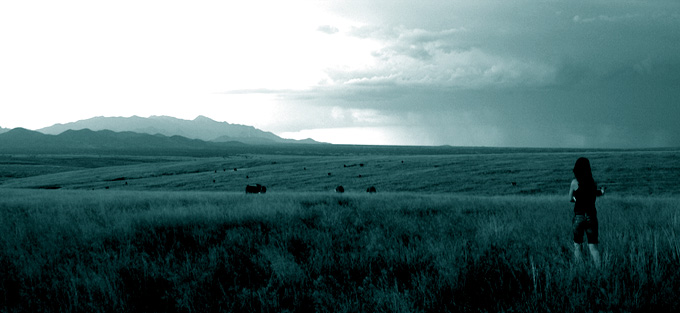by Collette Broady Grund
“For I know the plans I have for you,” declares the Lord, “plans for peace and not for harm, to give you hope and a future.” Jeremiah 29:11
If this is the first time you’ve read that verse from Jeremiah, I’m surprised. It’s often quoted at graduations and other big life transitions. It’s often cited in Christian cards of encouragement. I can’t even begin to the count the number of times I’ve heard people recite it to me from memory.
So when my spiritual director asked me to spend some time meditating on this verse last year, I almost rolled my eyes. “That old standard?” I thought, “Well, whatever. It can’t hurt anything.” And honestly, I was willing to try anything she suggested at that point, because I was really struggling to put my trust in God’s plans for a future that looked pretty bleak to me. So I agreed, and began reading it at the beginning of my silent meditation time each morning.
Wholeness
 And not much happened, at least for a while. Then one day, instead of reading it from the sheet I’d been keeping tucked in my devotional book, I opened up the Bible. The Lutheran Study Bible to be exact. “For surely I know the plans I have for you, says the Lord, plans for your welfare and not for harm, to give you a future with hope,” I read. Plans for welfare? That’s not the same as peace at all. I tried to call up my memory of Hebrew class in seminary to find a word that could mean both peace and welfare, but thankfully the study notes filled in where memory failed.
And not much happened, at least for a while. Then one day, instead of reading it from the sheet I’d been keeping tucked in my devotional book, I opened up the Bible. The Lutheran Study Bible to be exact. “For surely I know the plans I have for you, says the Lord, plans for your welfare and not for harm, to give you a future with hope,” I read. Plans for welfare? That’s not the same as peace at all. I tried to call up my memory of Hebrew class in seminary to find a word that could mean both peace and welfare, but thankfully the study notes filled in where memory failed.
Shalom. The Hebrew word that is most simply translated as peace, is a word of restoration and wholeness, that attends to body and soul, individual and society, heaven and earth. It is a word that the prophets, including Jeremiah, used to describe God’s intended future for the chosen people Israel. It is a word of promise spoken to people in ruinous situations, as in Jeremiah 29, when the Babylonian army has sacked Jerusalem and carried away every valuable item from the temple, along with many prisoners of war. “God has a plan in even this, a plan to restore to you a promising future and the hope you’ve lost,” Jeremiah tells the people.
Not surprisingly, they laugh in his face and threaten his life. When you’re sitting in exile, weeping by the rivers of a faraway country, shalom is unbelievable. When you’re 12 months out of a 10-year marriage that leaves a 3-year-old child in never-ending transition between two homes, wholeness is laughable.
When addiction is compounded by illness and your friends have abandoned you, you can’t begin to imagine how God can restore what you’ve lost.
And yet, for those Babylonian exiles, the hope they had lost roared to life with the rise of the Persian king Cyrus. For those who have wandered in the wilderness of divorce, the promised life eventually comes, often more tender and beautiful than before. Around those who have admitted their powerlessness over addiction and submitted themselves to God’s higher power, a community of support and faithfulness and care have arisen. The evidence of God’s fidelity to the promise of shalom is all around us.
That often-cited verse from Jeremiah is now a welcome reminder to me that God is at work in, with, and under the visible stuff of my life, crafting in unseen mystery a future more whole and peace-filled than I’m able to imagine. It’s just what she does, not because we deserve it, but because it’s her nature to bring order out of chaos. Not with my help, but often despite my hindering it, God is restoring my life and the life of all creation to its intended rightness. Shalom.
Discussion questions:
1. What are the parts of your life seeking restoration, peace, wholeness, or well-being?
2. What evidence do you see that God is working to bring shalom to the world?
3. What makes it hard to trust God’s promise of shalom?
Closing prayer
Restoring God, you promise again and again to make all things new, to bring wholeness to the brokenness of our world, to give peace that surpasses understanding. Help us to trust your promises in the face of situations that make them seem laughable. Show us your plan for our lives. Amen.
Collette Broady is a pastor, a mother, a writer, a singer, and most recently a fiancee. She blogs about all this and more at thebroadybunch.wordpress.com.


Thank you that is wonderful. I appreciated what you say about Shalom which is very helpful in this time. I will also be using it in my sermon this week!